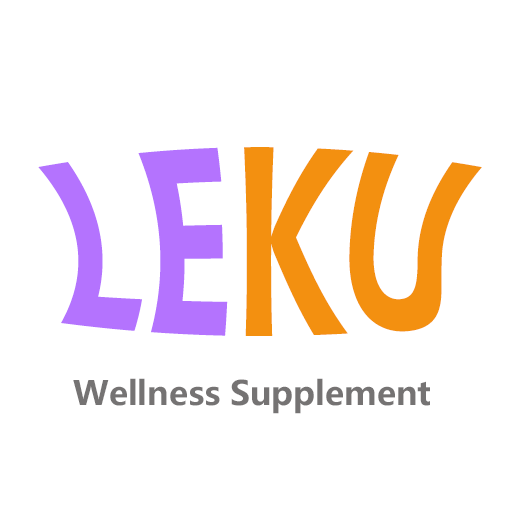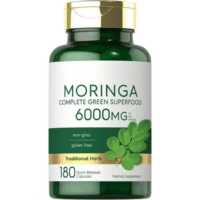Tryptophan: The Brain’s “Happy Code” and the Body’s Invisible Defender
Amino acids have many important jobs in the body. They help with mood, disease, and more.
When you’re feeling anxious after a late night, try drinking some hot milk with a piece of dark chocolate. These things help you relax. Tryptophan is one of nine essential amino acids that the human body cannot synthesize on its own. It is the cornerstone of protein and the “commander” of the nervous system. It is also the “architect” of immune defenses. In fact, it can even be transformed into a vitamin to save lives. Let’s explore this “magic molecule” from a scientific point of view.
Ⅰ. the brain’s “chemical messenger factory”: dual regulation of mood and sleep
The most striking thing about tryptophan is its journey through the brain. When it crosses the blood-brain barrier and enters the nervous system, it undergoes two key transformations:
- First, it is converted into 5-hydroxytryptophan, also known as the “happy hormone.”
About 1% of tryptophan is changed into 5-hydroxytryptophan (serotonin), a neurotransmitter that helps control mood. It suppresses anxiety, enhances feelings of well-being, and boosts decision-making power by activating the prefrontal cortex. Studies have found that levels of 5-hydroxytryptophan in the cerebrospinal fluid of depressed people are 40% to 60% lower than those of healthy people. Increasing tryptophan intake through diet or supplements can significantly improve mood. - It helps the body make melatonin, which helps you sleep.
As daylight fades, 5-hydroxytryptophan is converted to melatonin in the pineal gland. This hormone helps regulate our body’s clock, which controls when we sleep. Clinical trials have shown that people who have trouble sleeping and took 1 gram of tryptophan every night for two weeks fell asleep 30% faster and had 20% more deep sleep. However, the body needs enough light to make melatonin. Sunlight during the day can activate the enzyme that helps make melatonin. This is why people say “sunshine during the day, sleep well at night.”
Ⅱ. beyond the nervous system of the “all-round warrior”: from the immune system to the metabolism of the overall protection
Tryptophan has many health benefits. It plays a key role in many systems throughout the body.
- The “secret weapon” of the immune system
Tryptophan is a key ingredient in antibodies (immunoglobulins). Research has shown that mice without enough tryptophan have 50% less T-cell activity and 30% less antibody production. In the human body, a chemical called kynurenine, which is a byproduct of tryptophan, can help control immune responses, rheumatoid arthritis, lupus, and other autoimmune diseases. This can be helpful in treating these conditions. - Cardiovascular “scavenger”
Tryptophan can relax blood vessels and lower blood pressure by increasing the production of nitric oxide. A study of 100,000 people in Japan found that those who consumed more than 5 milligrams of tryptophan per kilogram of body weight each day had a 23% lower risk of cardiovascular disease. Tryptophan also converts “bad cholesterol” (LDL) into bile acids that are excreted from the body. - Masters of Metabolic Network TransformationTryptophan is really good at making B vitamins. For example, 60 mg of tryptophan makes 1 mg of niacin. Niacin is important because it can save lives. In the early 1900s, niacin was rare in the body. It could help people with a disease called pellagra.
Vitamin B2 works with tryptophan to help the body absorb more efficiently. This is why it’s recommended to eat milk and whole grains together.
Ⅲ. The Invisible Health Crisis of Modern People: Four Signs of Tryptophan Deficiency
Because people’s diets have become more sophisticated, around 30% of the world’s population does not get enough tryptophan. Here are some possible symptoms:
Feeling very emotional, like you’re on a roller coaster. Unexplained anxiety, irritability, or feeling numb.
Sleeping in short, fragmented bursts of sleep. Waking up with dreams and feeling sleepy during the day.
You might also have recurrent colds, slow wound healing, or metabolic disorders like rough skin and abnormal blood lipids.If you are very stressed, a vegetarian, or elderly, you are at high risk for tryptophan deficiency. High pressure can make tryptophan go away more quickly. For every 10% increase in cortisol levels, the efficiency of tryptophan transportation to the brain decreases by 15%.
Ⅳ. Scientific Supplementation Guide: Unlocking the “Potency Code” of Tryptophan
- Three major rules to enhance the effectiveness of tryptophan
The carbohydrate-assist method involves using insulin to help tryptophan cross the blood-brain barrier. It is best to eat a banana and yogurt one hour before bedtime, as this is more effective than drinking milk alone.
Micronutrient Alliance: Vitamin B6 (found in poultry, bananas) and magnesium (nuts, leafy greens) help your body use tryptophan.
Avoidance guide: High leucine foods (e.g., whey protein powder) can compete with tryptophan for absorption channels, so fitness people need to space their intake.
- Note for Special Populations
If you’re feeling depressed, you might want to consider taking 500-2000 milligrams of 5-HTP per day. This is a supplement that can help improve your mood. However, it’s important to talk to your doctor before taking any new supplements, especially if you have a history of depression. You might want to consider taking 500-2000 mg/day of 5-HTP (a substance derived from tryptophan) as a supplement, but you should get medical supervision to avoid serotonin syndrome.
Vegetarians: Increase your consumption of plant protein by combining grains and legumes, such as hummus with whole wheat crackers.
V. Cutting-edge breakthroughs: Tryptophan’s new mission in medicine
The latest research is expanding the uses of tryptophan:
It has potential as an anti-cancer agent: According to the journal Nature in 2023, substances in the gut that are produced when tryptophan is metabolized can activate immune cells to kill tumors.
It also affects the connection between the gut and the brain. Tryptophan metabolites affect the microbes in the gut via the vagus nerve, and they may be a new way to treat depression and irritable bowel syndrome at the same time.
Exploring anti-aging properties: In experiments with animals, adding tryptophan to the diet made nematodes live 15% longer, and its antioxidant effect is getting a lot of attention.




